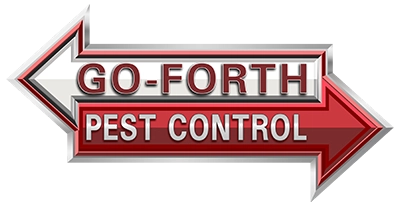How To Choose a Pest Control Company
There are a number of things you can consider when selecting the right pest control professionalfor you. You might consider a pest control company's qualifications and treatment methods as well as its customer reviews and years of experience. And of course, there's the cost of services to consider.
Below, we explore the details of each of these factors.
Does the company have a valid license and permits to perform pest control?
Per the United States Environmental Protection Agency (EPA), all pesticide applicators and their supervisors must be certified at the state level. The EPA does set minimum standards of competency, but all pesticide applicators in North Carolina need to be licensed through the proper state regulatory agencies.
Is the company a member of any professional organizations?
Obtaining additional optional certifications can help show that a pest control company is reputable. One of these is the GreenPro Service Certification. To earn this certification, a company must prove that its methods are more eco-friendly and that its employee training is up to date. Additional certifications can be earned through trade organizations like QualityPro.
Pest control companies can also hold membership in professional organizations. A pest control company can join state-level organizations in addition to national organizations such as the National Pest Management Association (NPMA). By being a member of these optional organizations, a company helps support its reputability and gains access to resources, education, and a network of professionals with whom to compare best practices.
Professional Experience and Specialties
The number of years that a company has been in business can shed some light on its experience dealing with the pests that live in Greensboro. Online reviews or the company's own website can also inform you whether it has the experience necessary to deal with your particular pests. If you cannot find the answers to your questions online, contacting the company directly is an easy way to learn about its areas of expertise.
Reviews and Recommendations
You can read reviews and recommendations on local review sites or social media, verify a company's Better Business Bureau (BBB) rating, or check the status of its license through the North Carolina licensing board.
Cost of Services and Guarantees
Cost is probably high on your list of priorities when hiring a pest control company. Cost can be influenced by the type of pest being treated, the size of your house, your location, and other factors.
Many companies offer free on-site estimates as part of their process, to help you decide whether it fits into your budget. You can also ask whether a company offers a satisfaction guarantees, meaning that if your pest problem is not solved by the initial treatment, it will continue returning until it is.
Safety and Treatment Methods
Your preferences regarding safety for yourself, your children, your pets, and the environment may influence which provider and treatment methods you choose.
Safety
All pesticides (except those that are determined to be of minimal risk) should be registered with the EPA. Your pest control provider should provide information on all the pesticides that they will be using. They should inform you whether these chemicals are low toxicity or non-toxic, and if not, what safety precautions will be in place.
Treatment Methods
You can ask if your pest technician will begin with eco-friendly and lower-toxicity options before using harsher chemicals.
Many companies have begun to use Integrated Pest Management (IPM) to reduce personal or environmental risk when treating pest infestations. The steps of IPM are as follows:
- Identify the source of the pest problem and assess whether immediate action is required.
- Determine the best and safest course of action.
- Use a combination of biological, cultural, physical, and mechanical controls to manage the pest problem.
- Employ chemical controls only if needed, and always in combination with other techniques for effective long-term pest management.
- Assess the outcome and provide additional pest control as needed.
















